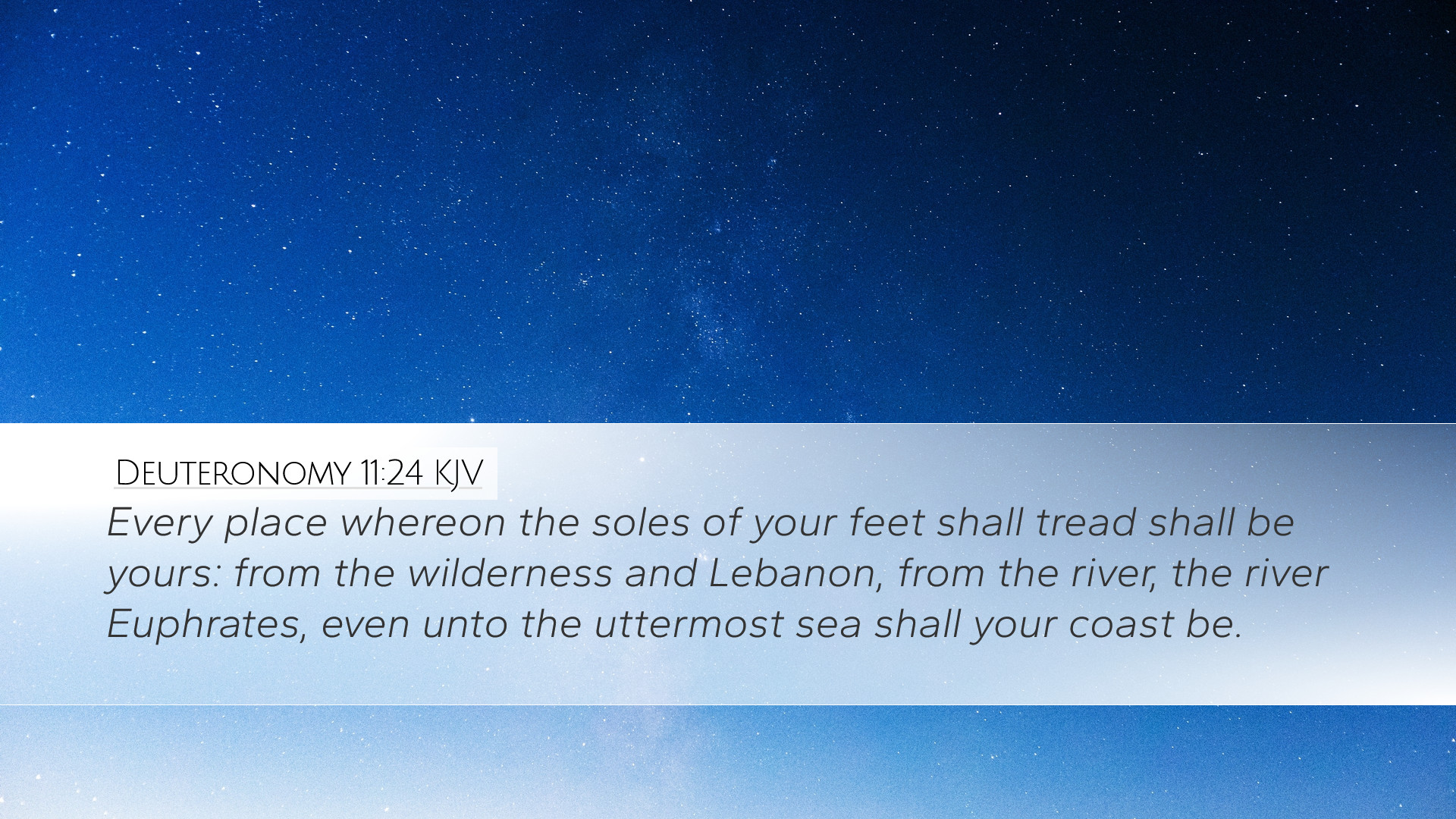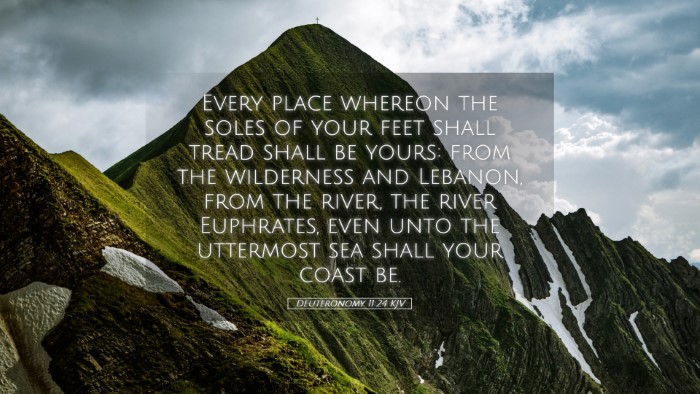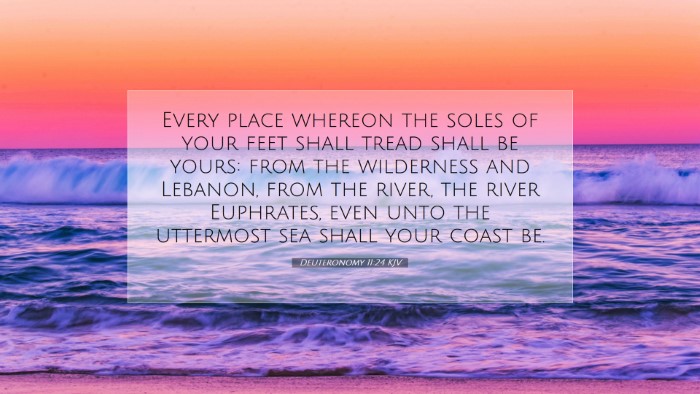Commentary on Deuteronomy 11:24
Verse: "Every place whereon the soles of your feet shall tread shall be yours: from the wilderness and Lebanon, from the river, the river Euphrates, even unto the uttermost sea shall your coast be."
Introduction
This verse encapsulates a powerful promise of possession and blessing from God to the Israelites. It emphasizes God's covenant faithfulness and the territorial blessings that awaited His chosen people as they prepared to enter the Promised Land. The commentary below synthesizes insights from notable public domain scholars, offering a comprehensive analysis for pastors, theologians, and biblical scholars.
Theological Implications
In Deuteronomy 11:24, we observe the extent of God’s grace and provision, which can be further dissected into several theological implications:
- Covenantal Promises: God’s promise is rooted in the covenant He established with Abraham, Isaac, and Jacob, symbolizing His ongoing faithfulness through generations.
- Divine Ownership: The land is ultimately God’s, and it is He who gives it to His people. Thus, the act of taking possession highlights God's sovereignty over creation and history.
- Active Faith: The promise is contingent upon the Israelites' willingness to move and act. The act of treading signifies faith—leaving the security of the known for the promises of the unseen.
Exegesis of the Verse
Matthew Henry remarks on the significance of "the soles of your feet," suggesting that the act of walking through the land symbolizes both possession and active faith. This principle indicates that the promise involves not just passive reception but a proactive engagement with God’s gifts.
Albert Barnes provides further insights on the geographical descriptions mentioned in the verse. He identifies “from the wilderness and Lebanon” as markers of a broad and bountiful territory stretching throughout modern-day Israel and beyond. This expansive vision underscores God’s intention for His people to flourish and multiply in the land, which serves as a fulfillment of His covenant.
Adam Clarke adds depth by discussing the implications of “the uttermost sea” as a reference to both the Mediterranean Sea and possibly the Dead Sea. This dual reference serves to remind the Israelites of the comprehensive and holistic nature of God’s promise, symbolizing peace and prosperity in all areas of life.
Practical Applications
For pastors, students, and theologians alike, the lessons from this verse extend far beyond ancient Israel. Here are key practical applications:
- Stepping into Destiny: Believers today are encouraged to step into their God-given destinies, understanding that active obedience invites divine blessing.
- Faith in Action: Contextualizing one’s faith through action, believers can reflect on their own “land” or ministry areas where they are called to tread in faith.
- The Boundaries of Grace: Understanding the limits and landmarks of God’s promises today can help Christians navigate the blessings and responsibilities of their faith.
Conclusion
Deuteronomy 11:24 serves as a pivotal verse demonstrating God's faithfulness in covenant and His desire to bless those who walk in obedience. As believers seek to apply this promise, understanding the intertwined nature of God's sovereignty, our faithful response, and the practical outworking of this promise in our lives can lead to profound spiritual growth and effective ministry. The insights provided by Matthew Henry, Albert Barnes, and Adam Clarke not only illuminate this scriptural passage but also inspire a deeper engagement with God’s Word.


